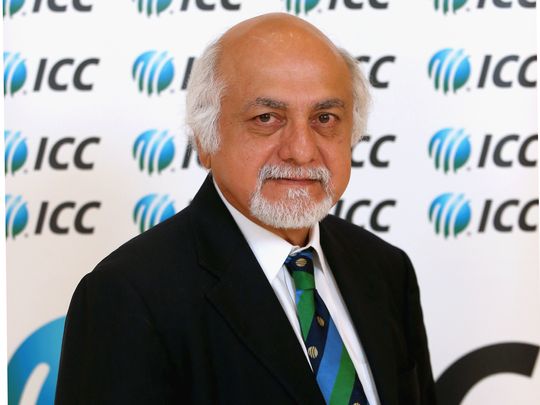Dubai: The successor to Shashank Manohar, chairman of International Cricket Council (ICC) who stepped down with effect from July 1, will be named next month with Greg Barclay of New Zealand emerging as a ‘compromise candidate’ for the top job in the sport.
There could, however, be a twist in the tale as Imran Khwaja, the former Singapore Cricket Association president and currently interim chairman of ICC for last three months – is also expected to throw his hat in the ring. The deadline for nominations was October 18, but the world governing body is yet to make any announcement about the names of the nominees.
‘‘The process of nominations is being overseen by the independent chair of the audit committee. Any information on the outcome of the process will be shared at it’s conclusion,’’ an ICC spokesperson told Gulf News.
READ MORE
However, informed sources reveal that Barclay, chairman of New Zealand Cricket since 2016, appears to be in pole position to take over the mantle from Manohar – who stepped down after serving two terms. Khwaja, who had been a vice-chairman to Manohar and done the hard yards, could however be the first ICC leader from outside the Full Member nations – the 12 elite countries in cricket’s tiered system – to have a tilt at the top job.
The race to the ICC top post had evoked huge media interest following Manohar’s resignation as the name of Sourav Ganguly, former Indian captain and now the President of Board of Control for Cricket in India (BCCI), started doing the rounds alongwith Colin Graves, the erstwhile chairman of England & Wales Cricket Board (ECB). Ganguly eventually shot down any such speculation – saying that he had ‘enough time left’ to take up the top post later.
Interestingly, unconfirmed reports now say that ‘Dada,’ as Ganguly is popular as, is interested in the vice-chairman’s post after the election process of the chairman is over. It’s a nominated post and Ganguly, who qualifies by being one of the directors of the ICC Board, should have no problems in enjoying the support of the members.
Barclay, incidentally, was known for his pragmatic approach towards the power moves of the ‘Big Three’ of India, England and Australia in 2014 – masterminded by N.Srinivasan, the then ICC chairman. “There’s no point taking India on head on; it’s just not going to work,” Barclay had said in 2016. “They make the money along with, to a lesser extent, England and Australia.
“We had to look at it from a pragmatic and commercial perspective. From our point of view, nothing stays as it is. There was always going to be changes,” Barclay, a member of the ICC board since 2012, had added. His views, hence, are diametrically opposite to that of Khwaja, a known believer in the inclusive approach in running the game like his former boss Manohar.
There is a widespread media conjecture over the voting process and whether a two-third majority will be needed to elect a chairperson or if it will revert to a simple majority. Under the ICC’s constitution, the two-third majority is needed – meaning 11 out of 16 votes is required.
The contest will be held through a secret ballot next month but if a winner cannot be determined after three attempts, then Khwaja will automatically be the chairperson for the next 12 months.

